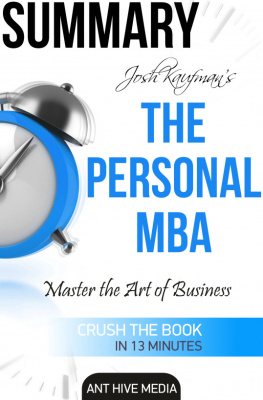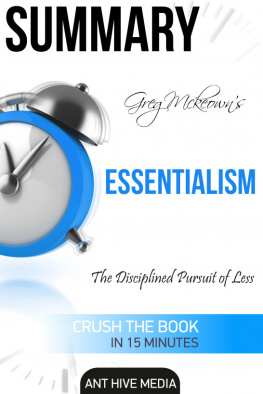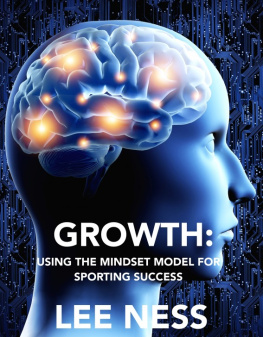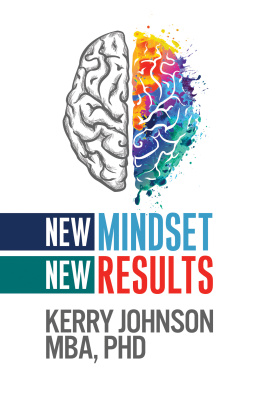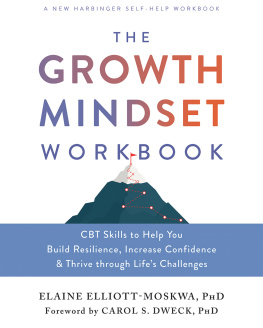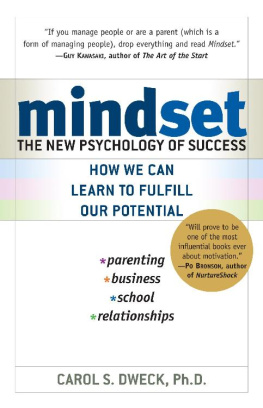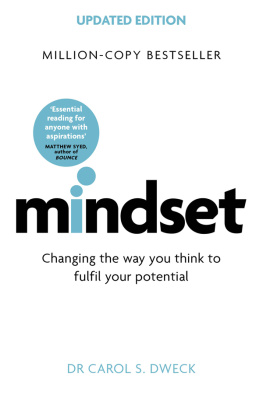Carol Dwecks
Mindset
The New Psychology of Success
Summary by Ant Hive Media

Visit:
www.anthivemedia.com/freesummaries
to receive your pack of (5) e-booksummaries
FREE!
Check us out on Instagram:
www.instagram.com/anthivemedia/
Follow along on Facebook:
www.facebook.com/AntHiveMediaSocial
Please Note
This is a Summary of the original book. AntHive Media reads every chapter, extracts the understanding andleaves you with a new perspective and time to spare. We do the workso you can understand the book in minutes, not hours.
Smashwords Edition License Notes
This eBook is licensed for your personalenjoyment only. This eBook may not be re-sold or given away toother people. If you would like to share this book with anotherperson, please purchase an additional copy for each recipient. Ifyoure reading this book and did not purchase it, or it was notpurchased for your enjoyment only, then please return toSmashwords.com or your favorite retailer and purchase your owncopy. Thank you for respecting the hard work of this author.
Copyright 2016 by Ant Hive Media.
All rights reserved worldwide. No part ofthis publication may be reproduced or transmitted in any formwithout the prior written consent of the publisher
Disclaimer
The fact that an individual or organizationis referred to in this document as a citation or source ofinformation does not imply that the author or publisher endorsesthe information that the individual or organization provided. Thisconcise summary is not intended to be used without reference to theoriginal book
AGift for You
As a way of saying thank you we want to
offer you a pack of (5) e-book summariesFREE!
Available Here:
www.anthivemedia.com/freesummaries

About Mindset: The New Psychology ofSuccess
No two minds think alike. And no two peoplesee the world in the exact same light. Many people are the exactopposites of each other, where one person is an introvert andprefers solitude, the extrovert shines in the spotlight. Somepeople are risk-takers and never miss an opportunity; others tendto be cautious and weigh every decision carefully. For many years,theres been a great effort among many, including academia,philosophers, scientists, and mental health experts (psychiatristsand psychologists) to look into human behavior, and explain why wethink and feel the way we do.
In recent years, Dr. Carol Dweck has becomea leading influencer in the field of science, specifically on humanthought and behavior. Her research has led to the theory thateveryone has one of two mindsets: a fixed mindset or a growthmindset. In Mindset: The New Psychology of Success, she explainsthe basis of a fixed and a growth mindset and its relationship tosuccess and how you can picture your relationships growing fromhaving a mindset. She believes that anyone can reshape theirthinking by erasing old patterns.
The Two Mindsets
Chapter Summary
In the past thirty years, Stanfordpsychologist, Dr. Carol Dweck, has focused her study on successfulpeople, wherein some of these individuals lived up to their fullpotential while the other group of people remained average. Dweckrejects the notion that ability is the reason for the difference.Instead, she asserts that how people look at ability iscrucialnotably, if its perceived as inherent through your DNA,this is a fixed mindset. If you conclude that your capabilitiesperhaps can be fostered through learning or effort, you have agrowth mindset.
Lets take a look at a fixed mindset. Whenpeople adopt a fixed mindset, they see intelligence as an innatetrait that wont change over time. They focus a lot on their smartskills and primarily on anything else they excel at. Conversely,they struggle with challenges because it might show inadequacy ordeficiencies, or expose their true self-image. Since success in notguaranteed, anyone with a fixed mindset lacks incentive to take onchallenges and often struggles with unpredictability.
Fixed mindset individuals are disciplined inbelieving they are who they are and are systematically uninspiredto put forth much effort. They either ignore criticism orinstinctively take it as a deep wound that calls attention to theirimperfection. Internalizing criticism as purely condemnation orrejection by others minimizes opportunities to improve theirthought process or grow as a person. Those offering constructivefeedback might be less inclined to doing so if they interpret thefeedback given as hurtful.
A thorny character flaw that troubles peoplewith fixed mindsets is when confronted with others success, theybecome insecure and feel threatened. They talked themselves intobelieving that other successful people became unduly so because ofgood fortune or luck, not performance. Undermining someonessuccess by being critical and highlighting their flaws in favor ofyour own self-interest is a tactic frequently used by peoplecontrolled by a fixed mindset.
What this boils down to in people with afixed mindset is they plateau early, limiting their growthpotential over the long run. This theory supports their convictionthat their raw talent is fixed, and they are who they are, thatshow they were born, and any meaningful change is not possible.
On the other hand, people demonstrating agrowth mindset have a remarkably different outlook. Students with agrowth mindset understand that their talent and intelligence can bestrengthened and developed through hard work. They place strongemphasis on learning and pay little attention to appearing smart.They welcome challenges as an opportunity for growth. Obstacles andfailure are not deterrents nor is the fear of making mistakesbecause their self-image isnt based on insecurities. Theirideology dictates that they can win at anything.
If you have a growth mindset, effort becomesthe source for acquiring knowledge and expanding your skills. And,criticism and negative feedback can be useful tools for providingnew perspectives. People with a growth mindset are not made ofsteel. Criticism can cause them some discomfort, but if thecriticism relates to their abilities, they are open to it becausethey desire to embrace change and achieve their full potential.
People with a growth mindset view success aswin-win for everyone; no one has the upper-hand and there are nolosers. In retrospect, they find the success of everyone to be aninspiration for their own growth and fulfillment. It leads them tostrive harder for higher achievement, and when done successfully,it champions positive feedback. The impact of such positivity givesrise to life-long learning and continual improvement.
Recap Of Core Concepts:
People with fixed mindsets are born withfixed intelligence and abilities that do not improve over time.They fear challenges and obstacles that will reveal weaknesses andinadequacies, regard criticism as a personal affront, and do nottake pleasure in the success of others. Their limiting beliefsthwart their own success and obstruct their own path.
People with a growth mindset believe theircapabilities can be broadened, that there is no limit to what theycan achieve. Challenges and obstacles are necessary to take on hardwork, experiment, and grow. They thrive on the success of others,and see it as a springboard for reaching their own fullpotential.





